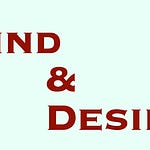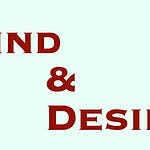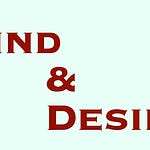I am planning on teaching a class on Plato's dialogues, at least certain of them, before too long. And so I've kind of got Plato on the brain, you might say. And I've been thinking for quite a long time about how to productively read platonic dialogues, whether you're doing so for a class or just your own edification and personal development and study. And I've got a few ideas that I'd like to share with you.
And I don't claim to be some sort of high-level Plato expert who's got all of the answers about this. There are definitely people I'm going to criticize, at least in their approaches, who can certainly claim a much higher status as far as Plato scholarship than I can, but maybe you'll find this interesting or helpful or even just provocative of thought.
So I think a lot of people lose sight of the fact that Plato did, in fact, write dialogues, and he did so by choice. We know that he also taught in his academy, and perhaps there's notes out there that we'll someday find or something along those lines. And there are some letters that scholars to some degree disagree about the authenticity of, but I'm not worried about that particularly myself.
We do have all of these dialogues. And there are some of those, by the way, where scholarship has gotten to the point where they say, I don't think this one is actually by Plato or it's dubious. And there's a lot of other stuff that we could go into. For example, which dialogues are early or middle or late? And that's that's a whole other topic that I'm not going to worry too much about at this point.
What I do want to say once again, however, is that they are dialogues for the most part. You could say, well, the Apology is more of a speech with a little bit of cross-examination dialogue built into it. Quite a few of the dialogues contain long passages where Socrates is advancing the discussion and and saying, doesn't it appear to you this way? And Glaucon will say, yes, indeed, Socrates, continue. But there's more than that to being dialogical.
One of the things that you're going to notice is that Socrates, or in many cases, other interlocutors in these dialogues, are not just putting forth their own point of view and saying, there you go, that's my account. They're challenging each other. Sometimes they're actually framing something like a dialogue within their own discourse that appears to be a monologue.
A great example of this is in the Crito, where Socrates brings in a character or rather set of characters who are not there, could be there, hypothetically, the laws of the city of Athens. And he stages a little bit of an argument back and forth between him and these laws that are going to accuse him of doing wrong to them. Or we might think as well about the Symposium where Socrates first engages in his typical back and forth with Agathon whose house he is a guest at and shows that Agathon's very nicely crafted speech doesn't reveal that Agathon actually understands love or virtue or the other topics that he's talking about, but then brings in another character and we're not even sure if she truly existed or not. Diotima, the wise woman from whom Socrates, according to himself, learned everything that he knows about love.
So dialogue is really, really central to this. And you might say, well, who cares? I mean, we have plays, we have other sorts of things that are dialogue, but this is philosophical dialogue. There's not an awful lot of action going on, but there's an awful lot of thinking, exchange of ideas, sparring back and forth, sometimes jokes, all sorts of those types of discourse.
There's a number of approaches that people have traditionally taken. And when I say traditionally, I mean, you know, not just back in ancient times, but also in the 20th century as well. Long enough that they've become established ways of looking at these things.
So one way of getting something out of Plato, but also making sure that you don't get much more than that, is to focus primarily on arguments. And this is typical of analytic philosophy. And that can be quite helpful at times to say, are these arguments that are being advanced any good? Where are their weak points? Where could we say that there's an assumption being made that could be questionable? Are they actually valid?
That's a nice approach. But if all you're doing is focusing on arguments, you're probably missing not only half, but I would say probably three quarters of what is actually happening in the dialogue. So it can be useful to focus in and say, what is the argument actually being advanced here by Socrates or by one of his other interlocutors? But we want more than that.
And another way of thinking about it is focusing in on what we could call doctrines, right? Or theses or things like that. What claims are being advanced and how should we understand those? And we may understand them in terms of the arguments that are being provided, but we may also understand them in terms of what we could call accounts.
And by the way, the term that's used in Greek, logos, which if you know anything about ancient Greek, you know, this is a pretty slippery, ambiguous term. It can mean argument. It can also mean account. It can mean a whole bunch of different things, a speech, a lie at some points in certain works. And so there's a lot of scope here for thinking about how what we do with words is actually helping us to understand ideas and reality.
So somebody might talk about Plato's doctrine of the forms, and they have some idea of what that is, and they may even read across multiple dialogues to get a sense of what the doctrine genuinely is that Plato is trying to convey. Bad news is, when it comes to a lot of his important doctrines, the dialogues don't always neatly map onto each other, and we have to do a good bit of thinking work in order to get out of them what it is that we want.
Now, some people have taken a very different tack and focused on what we call the dramatic elements of the dialogues, and that can be quite important. Oftentimes, along with that goes a sort of esotericism that myself, I find very unattractive because it involves people saying, I've got the hidden knowledge that all you dummies don't. And I'm pretty suspicious of people who make those sorts of claims.
But sometimes saying, well, what is actually going on here? That can be quite helpful. So that leads me into something that's a bit more positive. And I've got a few, we could say, not negative so much, pointers, but just a few things to keep in mind that might be helpful for you.
So characters matter, and character matters. A little bit of a pun there on my part. When we have a character like Thrasymachus or Callicles in the Republic or in the Gorgias, people who are advancing a certain kind of might makes right philosophy. It's reflected in the way that they talk. It's reflected in the stances they take and how they interact with say, Socrates or other people.
There are other characters in the dialogues who are also saying things and they're saying them not just in terms of the content, but the way that they're talking. And it's reflective of the kind of person who they are. And so I think that's important to be attentive to that.
Another thing is who's the main character in most of the dialogues, though not all of them, especially later ones, Socrates of course. And a lot of people approach the dialogues with an idea of Socrates already in mind, especially Socrates, the guy who knows that he knows nothing. And, you know, he does say that he's not sure that he has wisdom. He questions people, but he doesn't actually affirm that he knows absolutely nothing at all. And if he did, that would go against so many things that he actually does say in the dialogue.
So there's no substitute for reading the actual text and getting an idea of who the Socrates guy was by seeing how he interacts with people as well. He asks questions. He calls the person themselves as a witness rather than allowing them to push off the responsibility of justifying their points of view by quoting a poet or some other person or proverb or something like that.
And he's very interested not so much in hearing speeches, but in actual dialogue with people. And he'll model how Plato thinks we should engage in dialogue. And if we're paying close attention, if we're not even reading between the lines, but just being attentive, we will find out there's all sorts of things that Socrates actually knows.
And he will signify that to you sometimes by saying, well, don't we know that X, Y, Z? And then the interlocutor will say, yes, in fact, we do know that. Or we've at least attained this much in our discourse. We haven't actually managed to define what we're looking for. I think a lot of people, because their eyes are too much on the proverbial prize, they lose sight of all the other things that we learn along the way.
The other thing that I want to close with. If you do read platonic dialogues and you're paying close attention to them, you are going to notice that not only will some of the other characters make bad arguments and claims that can't really stand up and provide accounts that don't always completely make sense, but Socrates himself will sometimes do that as well.
And you could ask, why would Plato put words in the mouth of his friend, mentor, the person who is the emblem of philosophy itself? Why would he do that in his well-crafted dialogues? And there's a number of answers that we could give to this. I'm only going to suggest one here right now, but perhaps we'll explore this more in a future episode or in some some writings about this.
I think Plato wants you to realize when you see that that there's a problem there and for you to use your brain your mind to identify what's wrong with the reasoning And if you do that, you might not just say, oh, well, it's all bad. Throw it all away. You might say, I wonder how this could be qualified. I wonder how this account or argument could be improved. I wonder how this could be made more consistent. And doing that is actually thinking on your part, I'm convinced that that is part of what Plato calls dialectic, which is so absolutely irreplaceably important in the development, not only of you as an intellectual being, but also as a moral being.
So those are some reflections on Plato's dialogues. Perhaps they might be useful for you. Hopefully they are. If not, then maybe you'll like something else that I talk about with respect to Plato down the line.













Share this post